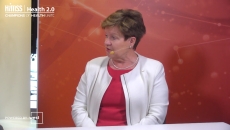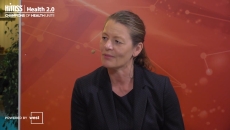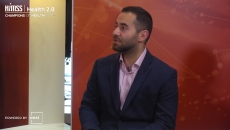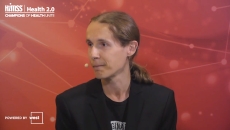Health 2.0
Cambio Healthcare Systems SVP Jan E. Larsson says with the maturity of the Nordic healthcare model, the time is ripe to focus on predictive care, while lowering the costs to patients and improving efficiency for providers.
Toni Suihko, CIO at South Karelia Social and Health Care District, discusses how integrating data is at the heart of digital transformation in healthcare and how Finland's collaborative culture contributes to the country's rapid progress in the area.
Julio Vivero, business partner at GMV, says the healthcare industry must identify and address cybersecurity issues it will be facing in the future, but a one-size-fits-all approach is not the solution.
Kaija Saranto, professor in Health and Human Services Informatics at the University of Eastern Finland, says it's crucial to ensure that the workforce is involved in the design process if you want to develop an effective digital health system.
Victoria Betton, mHabitat founder and director and HIMSS UK Advisory Council member, says two benefits of using digital tools to help improve people's mental well-being are anonymity and remote access.
Norway is using lessons from oil and gas industry successes along with the country's pioneering culture to fuel the drive to maximize the healthcare system's potential, Norway Health Tech CEO Kathrine Myhre, winner of the HIMSS Europe Future50 award.
Kalle Killar, deputy secretary general at the Ministry of Social Affairs in Estonia, says that nearly 20% of the country's citizens are gene donors, giving it a very valuable asset for implementing precision medicine.
Blockchain technology can be a game-changer, but it’s still in its infancy, so manage expectations accordingly, says Dr. Abdullah Albeyatti, CEO and co-founder at Medicalchain.
Petteri Kivimäki, CTO for Nordic Institute for Interoperability Solutions, says X-Road is being used by Finland and Estonia to enable the secure exchange of data, with opportunities to expand to the rest of Europe.
Mikko Vasama, general manager of Health Systems Nordics at Philips, says when working within a publicly funded healthcare system, training, education and access to technology for patients are imperative.









